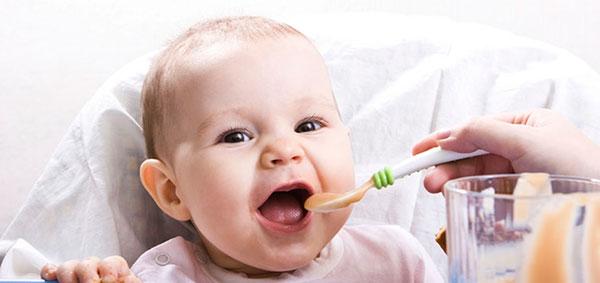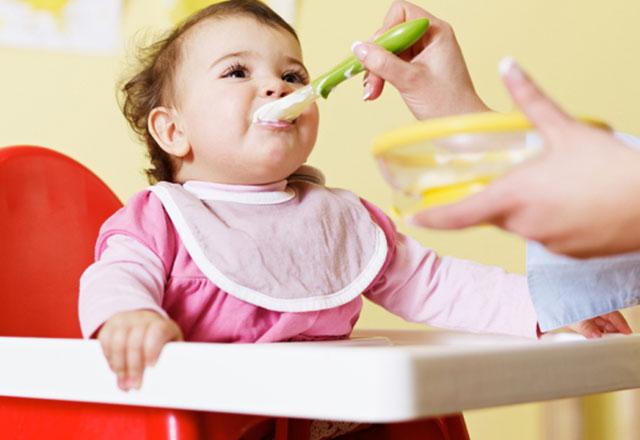You are here
Feeding puréed peanuts to infants can reduce allergy risk
By Reuters - Jan 07,2017 - Last updated at Jan 07,2017

Photo courtesy of peanutallergyfacts.org
Parents should feed babies creamy peanut butter or puréed food with nut powder when infants are four to six months old to help lower the risk of life-threatening allergies, new US guidelines urge.
For most babies — kids without severe eczema or egg allergies that make peanut allergies more likely — new guidelines from the National Institute of Allergy and Infectious Diseases recommend introducing foods containing peanuts as soon as babies are able to tolerate other solid foods.
“For most infants, introduction can be done at home,” said allergist Dr Matthew Greenhawt, chair of the food allergy committee for the American College of Allergy, Asthma and Immunology and a co-author of the guidelines.
“Whole peanuts should never be given to any child under the age of 4, as it they are a choking hazard,” Greenhawt added by e-mail.
The new guidelines are a radical departure from recommendations in 2000 that advised against giving babies peanuts before age 3. Revised recommendations in 2008 had suggested no food be delayed past four to six months but failed offer specific guidance on when to feed babies peanuts.
Peanut allergies are a leading cause of death from food allergies in the US and the new guidelines aim to alter this statistic by helping babies get an early taste that will make severe allergic reactions less likely.
Some allergic reactions can be mild with symptoms like hives or nausea, but more serious reactions can lead to anaphylaxis, when the airways tighten to the point where it is impossible to breathe. People with anaphylaxis can die if they do not get immediate medical help.
As doctors and parents change their approach to peanuts to follow the new guidelines, early exposure should help dramatically curb the number of children who develop severe allergies, doctors say.
Under the new guidelines, most babies can have peanuts introduced at home by parents or caregivers, but infants with severe eczema or egg allergies should see an allergist first. A specialist can test for peanut allergies and if necessary, give babies their first taste of peanuts during a doctor visit.
These precautions are for infants with severe eczema that does not respond to treatment with moisturiser or corticosteroid creams or ointments, not babies with temporary rashes.
“Infants without severe eczema or egg allergy are unlikely to have peanut allergy by 4-6 months, although they still have a risk for developing peanut allergy later, especially if they are not fed peanut in early infancy,” Dr Robert Boyle, a researcher at Imperial College London who was not involved in the guidelines, said by e-mail.
In infants without eczema or any food allergies, parents should feel comfortable giving babies a taste of peanuts after they are accustomed to eating other solid foods, said Dr Sandra Hong, an allergy and immunology specialist at the Cleveland Clinic in Ohio who was not involved in the new guidelines.
“These guidelines are different than what some doctors may be currently recommending because, previously, the practice was to avoid the highly allergenic foods for risk of developing an allergy,” Hong said by e-mail.
The new advice follows trial results reported in February 2015 that showed regular peanut consumption begun in infancy and continued until 5 years of age led to an 81 per cent reduction in development of peanut allergy in infants deemed at high risk because they already had severe eczema, egg allergy or both.
“Monumental trials have shown that prevention or food allergies can occur with early introduction of peanut and egg into the diet,” Hong said.
The guidelines are being published simultaneously in several journals, including the Annals of Allergy, Asthma and Immunology.
Related Articles
Infants who get a taste of eggs and peanuts starting when they’re as young as four months old may have a lower risk of developing allergies
With peanut allergies on the rise worldwide, a study Monday found that contrary to previous advice, feeding foods containing peanuts to babies before 11 months of age may help prevent allergies.
Doctors said Thursday they could treat peanut allergy by feeding children the very thing their bodies reject, so building tolerance that could save a life in case of accidental ingestion.



















